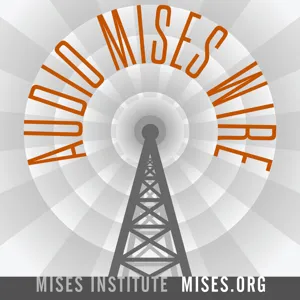Podcast Summary
School closure and efficiency: School choice could lead to more efficient use of resources and better education system overall by allowing underperforming schools to close and making way for more effective competitors
The debate around school choice is complex, with valid concerns on both sides. While the idea of allowing government funding to follow students to the schools of their choice seems logical and could potentially lead to improved quality and competition, there are potential downsides as well. One argument against school choice is the possibility of numerous underperforming schools remaining open due to the funding mechanism. However, it's important to consider if keeping these schools open is ideal, especially if they're not delivering a quality education. In a free market, businesses that can't cover their costs should close to make way for more efficient and effective competitors. The same principle could apply to schools. While this might lead to some schools shutting down, it could ultimately lead to a more efficient use of resources and a better education system overall. Ultimately, the goal should be to provide the best possible education for students, regardless of which schools survive in the marketplace.
Market prices and education quality: Market prices indicate demand and supply for education, inefficient schools should be allowed to fail, and specialized knowledge and skills have varying values in the job market, while basic educational skills should maintain a standard.
Market prices serve as indicators of the demand and supply for goods and services, reflecting individual preferences. Inefficient businesses, such as schools under voucher systems that have higher costs than the value they provide, should not be protected and should be allowed to fail. Instead, resources should be allocated to more efficient ventures. However, determining the quality of education under voucher systems is complex, as what constitutes a quality education can vary greatly depending on the field or profession. There is no universally agreed-upon objective standard for education. Instead, prices for educational services can be determined based on the demand for specialized knowledge and skills in various fields. Basic educational skills, like mathematics, reading, and writing, have value for all and should maintain a certain standard. Ultimately, the market can help ensure that education, like other products and services, meets a minimum acceptable level of quality.
Education vouchers and government funding: Government funding for education through vouchers could lead to increased prices and promotion of progressive ideologies, potentially creating a price floor for private schools.
Markets generally move towards offering higher quality products at lower prices to attract more customers. However, when it comes to education and the use of government vouchers, there are potential risks. Government funding can come with strings attached, which could lead to the promotion of progressive ideologies and increased prices. Private schools, in their pursuit of new customers and funds, may end up becoming left-wing echo chambers. The use of vouchers could even result in a price floor for private schools, allowing them to raise tuition costs. This historical trend in higher education serves as a cautionary tale.
Government involvement in education: Government involvement in education through guarantees and vouchers can lead to increased costs, regulations, and distortions, potentially limiting access for some families and reducing accountability and efficiency in public schools.
Government involvement in education through guarantees and vouchers can lead to increased costs, regulations, and distortions in the education market. These interventions can result in a lack of accountability and efficiency in public schools, while potentially limiting access for some families. The use of taxes to fund education also creates a situation where those who pay are often unable to access the services directly. Ultimately, these interventions can limit the freedom and autonomy of schools and may lead to long-term negative consequences. It is essential for those who value education choice and quality to be cautious about expanding government involvement in the education sector.

